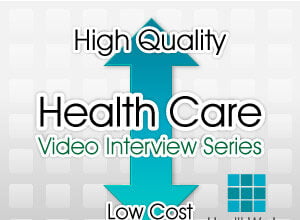The Case
In 2009, administrators at St. Joseph Medical Center in Maryland wrote letters to patients of Mark Midei, informing them that its staff cardiologist may have subjected them to a coronary artery stenting procedure inappropriately. That communication prompted an article in a local newspaper, which triggered an investigation by the Senate Finance Committee.
The Case
In 2009, administrators at St. Joseph Medical Center in Maryland wrote letters to patients of Mark Midei, informing them that its staff cardiologist may have subjected them to a coronary artery stenting procedure inappropriately. That communication prompted an article in a local newspaper, which triggered an investigation by the Senate Finance Committee.
The Committee subsequently released a report which asserted that Midei performed nearly 600 stenting procedures unnecessarily, and charged Medicare nearly $4m for these procedures. According to the report, all the procedures involved stents made by Abbott Labs. Abbott, in turn, had paid Midei $31,000, added him to its roster of top stent volume cardiologists, and feted him with a pig roast at his home to celebrate a prodigious day in which he implanted 30 stents (apparently a company record). Then, after St. Joseph’s dropped Midei from its roster, Abbott hired him to provide services in Japan and China. In the subsequent year, the number of patients who received stents at the hospital fell to 116 from 350 in the previous year.
Most recently, the Maryland Board of Physicians revoked Midei’s license to practice medicine after concluding that he did implant stents into the coronary arteries of 4 patients inappropriately. The Board also determined that he exaggerated the severity of coronary blockages, and claimed incorrectly that they had unstable angina. Midei has denied the allegations and sued St. Joseph for damaging his career.
The Context
The Midei case is particularly egregious, but a recent study in the Journal of the American Medical Association suggests that many thousands of percutaneous coronary interventions (PCIs)—perhaps as many as 4% of all those performed each year in the US—are inappropriate.
The study was organized by Paul Chan of Saint Luke’s Mid America Heart and Vascular Institute. Chan’s team found that when PCIs were done for acute indications like an evolving myocardial infarction (heart attack), the overwhelming majority of cases (98.6%) were performed for appropriate indications. A remarkably low 1.1% were done inappropriately (in the other cases, the benefit was uncertain).
For elective procedures like the ones performed by Midei however, fully 11.6% of all PCIs were inappropriate, and an additional 38% were carried out for indications associated with unclear benefits. Most of the procedures deemed to be inappropriate were carried out on patients with no angina (54%), low-risk ischemia as determined by exercise testing (72%), or patients that were not receiving ‘maximal’ medical therapy (96%). Ninety-four percent of these patients also did not have ‘high risk’ coronary anatomical findings.
Chan’s group found enormous variation across hospitals in the rate of inappropriate elective PCIs, with the range being 0% to 55%. The best-performing quartile had 6% or fewer inappropriate PCIs, while the worst quartile had 17% or more.
To determine which PCIs were done for appropriate indications, Chan’s group used criteria released in 2009 by a task force which included representatives from the American College of Cardiology, the American Heart Association, the American Association for Thoracic Surgery, the Society for Cardiovascular Angiography and Interventions (SCAI), the American Society of Nuclear Cardiology and the Society of Thoracic Surgeons.
The scientists used data from the CathPCI registry which included information on more than 500,000 procedures performed at more than 1,000 US hospitals between July, 2009 and September, 2010.
Just over 70% of all procedures were done for acute indications, including ST-segment elevation MI (STEMI), non-STEMI, and certain high risk patients with unstable angina with high-risk features. The others were elective.
How Many Stents are Enough?
Nearly 600,000 percutaneous coronary interventions (PCIs) are performed per year in the US. Patients receiving the expensive procedure are exposed to procedural complications, and an increased risk of bleeding and stent thrombosis. Trials in patients with ‘stable’ cardiovascular disease reveal that PCI provides no better than modestly improved symptoms, when compared to medical therapy.
Given this, few cardiologists would be pleased to hear that one out of eight elective PCIs is performed for reasons deemed by experts to be inappropriate. My guess is that many of the inappropriate procedures can be traced upstream to earlier decisions to perform diagnostic catheterizations in the first place, perhaps motivated by a borderline result on an exercise tolerance test, or unwillingness by the patient or the physician to give medical therapy a full, fair trial. Once an invasive diagnostic procedure like this is undertaken, it can be awfully tempting to treat borderline lesions with PCI and stenting, even though these lesions are unlikely to be life-threatening anytime soon.
A second factor, cited by Chan’s group, is that Cardiologists don’t always agree with, or understand the guidelines crafted by their peers. In fairness, guidelines developers assume ‘average’ proficiency with the PCI procedure. For extremely talented clinicians, the risk-benefit ratios assumed by developers may not reflect results on the ground. Still, for Cardiologists who aren’t familiar with the guidelines, simple educational programs are likely to improve outcomes.
In part, this is why 38% of the elective PCIs in Chan’s study were done for ‘uncertain’ indications. Additional research is required understand how PCI can benefit certain patient populations, and how variable skill-levels among Cardiologists can affect recommendations.
And let’s not overlook the patients’ role in medical decision making, especially in areas deemed as uncertain by the experts. Some patients can tolerate and comply with complex medical regimens better than others. Some patients can more easily afford to pay for expensive, lifelong medical therapies. In Cardiology as in other disciplines, the practice of medicine is often not black and white. This is why clinical judgment and optimal physician-patient communication will always remain at the center of good medical care.







